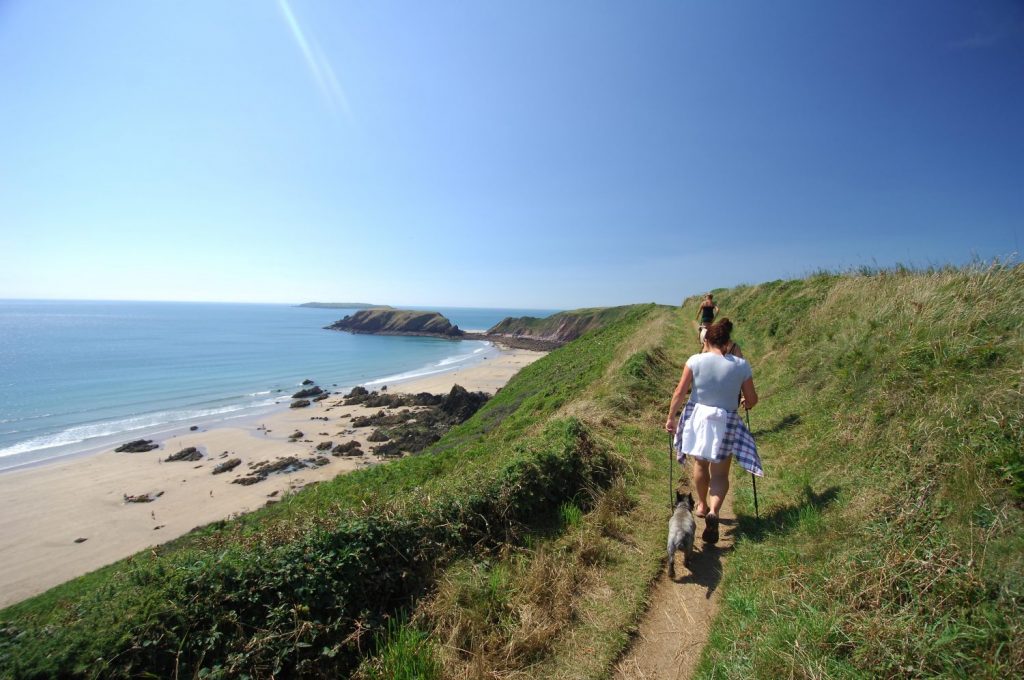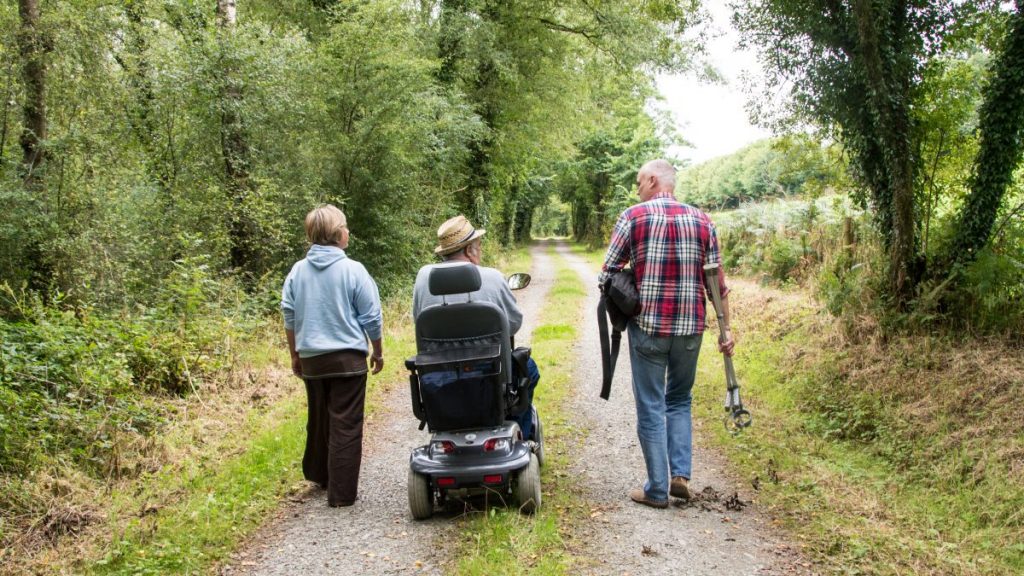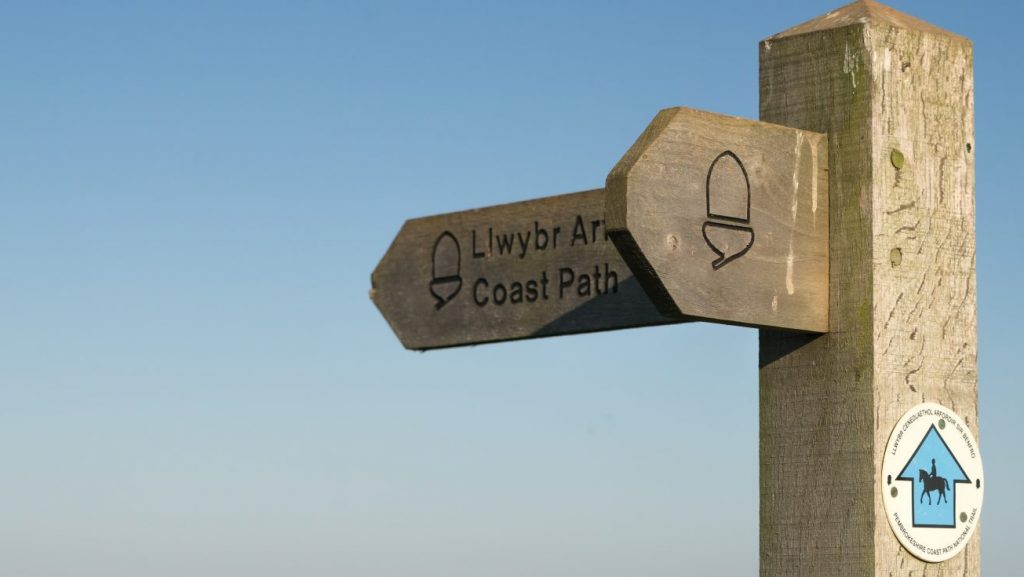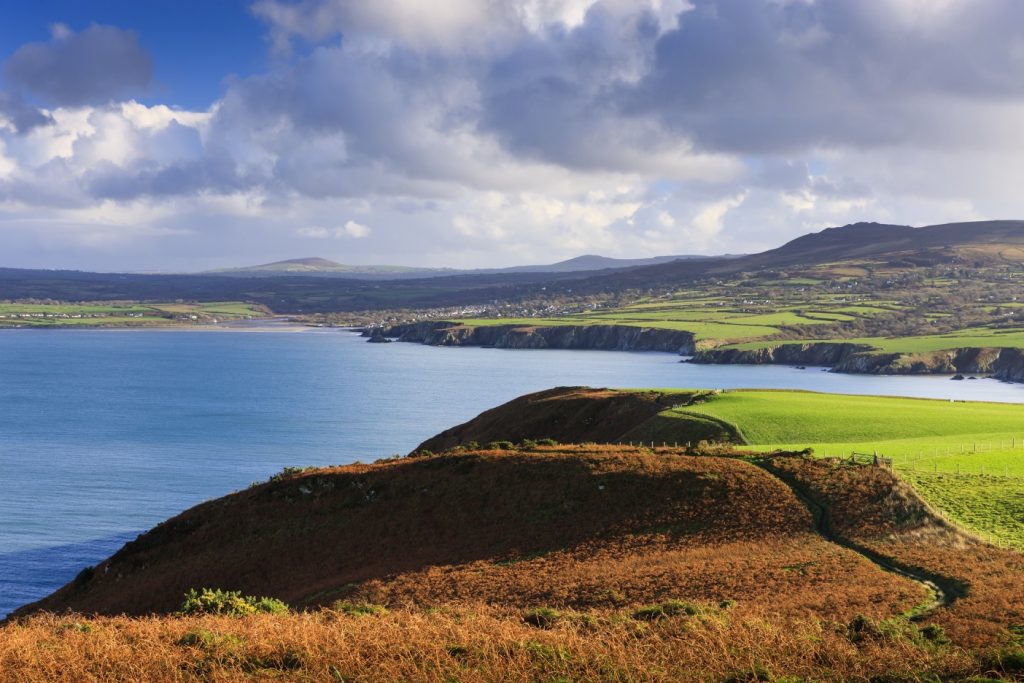DISTANCE/DURATION: 3.8 miles (6.1 km) 2 hours.
PUBLIC TRANSPORT: *Poppit Rocket 405 (*seasonal, hail & ride).
CHARACTER: Moderate on coast and inland paths, steep section at Witches’ Cauldron, fields and livestock, 2.1 km minor road walking. LOOK OUT FOR: Dramatic geological folding and faulting of cliffs, looking north from Ceibwr collapsed blowhole of Witches’ Cauldron, Iron Age fort, razorbills and seals.
Wild and lonely, the coast around Ceibwr is especially rocky and dramatic. Ceibwr Bay is a small inlet little more than a stone’s throw wide – with a stony beach. Grey seals can often be seen close to the beach.
The cove is the only break in a forbidding stretch of cliffs from Cemaes Head to the north and Newport to the south. Their geology is striking – over millions of years the Ordovician rocks were contorted and folded by powerful earth movements and the tortured strata are clear to see.
From the path above Ceibwr Bay there are excellent views of the patterned cliffs to the north at the headland Pen-yr-afr.
Ceibwr itself is a relatively recent addition to the landscape. It was carved out by Ice Age meltwater that flooded the Nant Ceibwr, the stream that now fans out over Ceibwr’s beach, along with the stream’s wooded valley, Cwm Trewyddel. The attractive village of Moylegrove shelters in the cwm.
The clifftop section from Ceibwr passes jagged rocks, caves and blowholes. At Pwll-y-Wrach, the Witches’ Cauldron, the roof of one cave has collapsed to create an impressive blow-hole. On one side a stream disappears into this ‘cauldron’, while on the other a narrow passage connects it to the sea.
Look out for the Iron Age hill fort, Castell Treriffith, close to Pwll-y-Wrach. A lonely part of the coast, the cliffs and rocks around Ceibwr are excellent for wildlife-watching.
Seabirds to look out for include gulls, fulmars, shags and cormorants, while there is also a good chance to see choughs. A member of the crow family, the chough has glossy black plumage and both its long, curved beak and legs are bright pink. They like to probe turf for insects and are rarely seen far from the sea.
Geraint Harries, North Sector Senior Ranger for Pembrokeshire Coast National Park Authority, says: “During the early summer you can often see groups of razorbills and guillemots hunting for fish just offshore.”
Find this walk
Grid ref: SN113450
SAFETY FIRST!
- Take great care when on the Coast Path
- Stay on the path and away from cliff edges
- Wear boots and warm, waterproof clothing
- Take extra care in windy and/or wet conditions
- Always supervise children and dogs
- Leave gates and property as you find them



